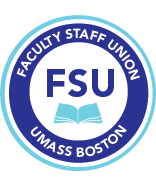The Point: DIY and the Cypher
9/20/2021
Greetings, Colleagues!
As we move into our third week of classes, I hope you are healthy and finding ways to be engaged with your students, your faculty and staff colleagues, and your own scholarly and community-based work.
My title for this week is likely going to be a little puzzling to some of you but I promise to explain it in just a minute. It was inspired by the growing body of comments I’ve encountered since semester began that basically boil down to: “we’re not really back to normal are we?”
While most of us have been thrown back in to some measure of f2f campus experience, it is certainly not the same experience we remember from March 2020. We are encouraged by various powerful forces in the culture to embrace this “new normal.” But as so many have been discussing, what we are really experiencing is the amplification of some of the worst aspects of the old normal: in short, we are plunged into a scenario in which many members of the UMB community are pushed to work in relative isolation as quasi-independent operators, competing for resources in what gets framed as a zero-sum game, at once deluged with too much information and not enough meaningful guidance.
In short, welcome to “Neoliberal U.: The Pandemic Years.”
I am thinking of all the colleagues who had to apply individually for exemptions to teach remotely—for reasons having to do with their own health, having unvaccinated children or vulnerable elders at home, and so on—rather than have the administration support the collective solution—a more graduated return to campus—proposed all summer by the FSU. I am thinking of the colleague who found himself in an office on campus attending a meeting on-screen, sitting next to another colleague, “at” the same meeting, on another screen. And of the colleague whose step counter tells her she is getting lots more exercise than usual, not by choice, but because of how often she is getting lost on campus. And the many of us who can’t really figure out how to get to the library on our university campus, or direct students to it. Not to mention the many individuals and departments buying fans, air purifiers, and microphones, and trying to measure CO2 levels while we wait for the air quality expert we have contracted with through the MTA.
And of course we are still all doing individual AFRs and ALRs rather than evaluating our contributions in the collective formations in which we do so much of our work; thanks to an FSU initiative, we at least managed to get an extra week to hand them in.
There are many signals telling us to try to weather the storm on our own. But we all need to remember that these days if we see someone’s hand signaling from down around the harbor, the person (as Stevie Smith's poem put it) is probably “not waving but drowning.”
So, back to my title.
Both “DIY” and “Cypher” have salience that derives from popular music history. “DIY” literally stands for do-it-yourself, and has been an organizing principle for various musical subcultures (particularly those in and around punk rock). The idea was that the top-down corporations were never going to support the music you wanted to make, the way you wanted to make it, so you better learn how not only to make music, but run venues, make, print, and circulate flyers, learn how to work soundboards and lights, and all the rest. Central to “DIY” is that the “you” in “yourself” was always understood to be plural. It only works if various overlapping communities take on the work together.
Cypher is a term that was born in the early days of hip-hop culture. It indexes an improvisatory scenario—a group of people come together, usually outdoors, often in a circle, as various rappers “battle” each other in verbal in form. But it’s not really any kind of fight: it’s a ritual of coming together, testing boundaries, ginning up collective energy and ambition. The productive tension of this group activity has been invoked by the group of faculty, students, and staff on campus who have adopted the name Cypher to organize under to do the work of expanding “our capacity to further dismantle white supremacy and create racial justice and equity.”
The FSU will continue to engage in good faith main table and impact bargaining with the administration of UMB. But we must at the same time remember the lessons of punk and hip hop and figure out when to circle up together and organize around whatever we can for ourselves and for the common good.
- The next executive committee meeting is this Friday at 3 (more details to follow soon): you should come!
- This form is a good way for you to let us know about any unsafe conditions you are encountering on campus.
- If you have particular comments, questions, or insights for our core bargaining team you can reach them at fsu.bargaining@umb.edu.
We are all in this together: please keep us informed of any questions, concerns, or comments you have about campus life at fsu@umb.edu.
Sincerely,
Jeff Melnick
American Studies Department
Communications Director, Faculty Staff Union Executive Committee
For information on the FSU, links to our contract and bargaining updates, and a calendar of events, see the FSU webpage
